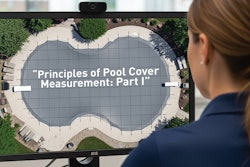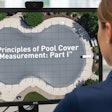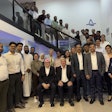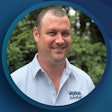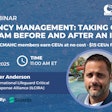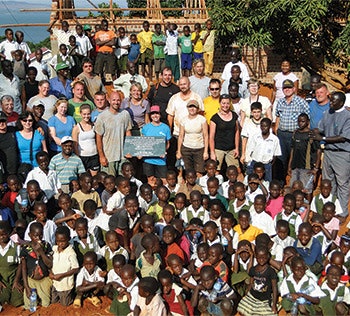 The Aquascape team along with one of the communities they helped.
The Aquascape team along with one of the communities they helped.
A recent study found 4 billion people face water scarcity at least one month out of every year. Despite the enormity of this freshwater crisis — or perhaps more accurately because of it — pond supplier Aquascape (St. Charles, Ill.) is trying to do something about it.
In 2008, the company founded the Aquascape Foundation, a non-profit focused entirely on installing rainwater-harvesting systems in third-world communities where potable water is completely unavailable. Since its inception, the foundation has installed two systems in Uganda, Colombia and the Dominican Republic. All of the systems are installed by Aquascape dealers and pond builders, who volunteer their time and pay for their own travel.
Carla Wittstock, wife of Aquascape's founder and CEO, Greg Wittstock, heads the foundation.
"There's so much terrible desperation in these communities," she says. "It's unbelievable; difficult for people in the U.S. to imagine. In the village where we installed the first system back in 2009, there wasn't a single child who looked healthy.
"It's one thing to hear about the worldwide water crisis," she adds, "but when you're standing in a marshy field, watching young children collect filthy water that has puddled in the hoof prints of cattle, it changes your perspective."
The systems typically provide the only source of potable water for the communities, where the impact has been dramatic. "The progress might seem small at first," Wittstock reports. "Sometimes it's children growing their hair back, which they lose when they're so sick and dehydrated, or their headaches stop. Ultimately when they can stop focusing on collecting filthy water, which is making them sick, only then can they get on with other aspects of their lives."
Even for all of the disease and desperation, Wittstock reports that the local people embrace the crews with constant expressions of gratitude and surprising vigor. Likewise, the crews themselves come away inspired by the experience with many taking part in multiple installations. "It's a huge challenge," says Wittstock, "but everyone involved benefits.
"Clean water is something we take for granted," she concludes, "but it's so essential to life itself, and yet it isn't available to these people. Nothing happens without water, no education, no economic development, no health care, no food, it's the most basic human need."



























